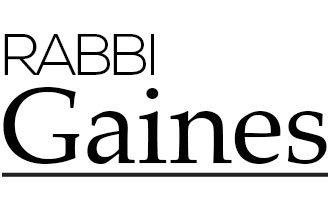Where’s Waldo? I know your gut reaction is probably, “Who the ___ cares”, but there’s something much deeper about strange little Waldo’s obsessive need to hide everywhere than people realize. Before we can ask “Where’s Waldo?” we must first identify, “Who is Waldo?” Let’s get Kabbalistic! Think of “Waldo” as a spark of Godliness (the light of the Creator), and his “hiding” as the concealment of this spark in the depths of our everyday worldly experience. Kabbalah often uses the terms fruit and shell to explain this light/concealment scheme. Namely, the “spark” is as if a delectable piece of fruit yearning to be discovered (God yearning for us to discover Him.) In contrast, the spark’s concealment in the everyday events of the physical world is as if the coarse shell that surrounds and conceals the fruit. Our goal, explains Kabbalah, is to discard the shell and acquire the fruit – see through the “crowd” and find “Waldo.” Ok, so say I find Waldo, what then? What does this finding do for me? The finding of this Divine spark reaches far beyond the self, my little subjective world; it touches humanity as a whole. Since Waldo represents the Godliness of the experience, finding Him is synonymous with finding eternity! This eternal truth is something every human being secretly longs for whether they know it or not. Once such truth becomes “uncovered”, the shell is cracked wide open and the fruit revealed, it fills us with the loftiest sense of joy, a joy that is rooted in the immutable truth of Divine purpose. Kabbalah teaches that the roots of all human misery lie in our collective and individual failure to differentiate between Waldo and the masses, i.e. fruit and shell. Think of it logically, how can we ever hope to sustain, much less create, eternal joy when we are addicted to the practice of eating shells? Ever try biting into the rind of a nut? Unpleasant doesn’t even begin to describe it. But what if you were never taught that sweet “fruit” exists? What if “shell eating” was all you knew? You would likely adapt to the unpleasantness and convince yourself that bitter is really sweet – darkness is really light! God forbid any of us subscribe to a life rooted in self-deception, for such joy is transitory at best, i.e. impermanent. To taste the eternal, we must get in the habit of looking deeper, beyond the rind, and finding the “fruit” hidden within. Now comes the big question: How do we do it? How do we take the plethora of shells endemic to our world (physical consciousness) and crack them open to reveal/draw out the Divine spark (spiritual consciousness?) Elaine from Seinfeld would say, “Give me technique, man!” Here’s where to begin: Be thankful for your discomfort. Let me explain; Discomfort/angst is nothing more than a symptom of discontentment. Discontentment is symptomatic of tasting the shell but not the fruit. When we truly grasp the fruit the experience is sumptuous, joyful, and deeply satisfying. Hence, angst is nothing more than a reminder, a reminder that you have not yet reached the intended experience. When you find yourself in the throes of frustration try saying, “This is only the rind; the fruit I yearn for is here but it is deeper and I must push forward to discover it.” Search for the truth and be undeterred, for this search/discovery is the mission. This is why I say to be thankful for your discontentment, for only when you feel something is wrong can the problem be addressed. Based on the legendary teachings of the Maharal of Prague (famous sage and Kabbalist of the 16th century), we can conclude that the sickest individual in the world is not the one slouched in the hospital chair awaiting the doctor’s attention (the one who feels the discomfort and seeks attention to address it); it’s the one walking around outside feverish and miserable unaware that he/she is even sick! Feeling dissatisfied with our relationship, home life, personal growth, or occupation is the gateway to ultimate resolution – it (the discontentment) invites us in to explore deeper. This is the deeper meaning of “afflictions of love” mentioned in Rabbinical literature (Talmud tractate Berachot); “afflictions” (discontentment) that stir our consciousness and awaken our search for Him (love). If we trust ourselves and use the “darkness”, the dissatisfaction of the moment, to look deeper and investigate, then we will undoubtedly discover the precious fruit that is the great treasure of the soul. Such revelation will indeed heal mankind from the great depression that is the absence of that ultimate consciousness, “There is nothing else but Him.” Now go search



